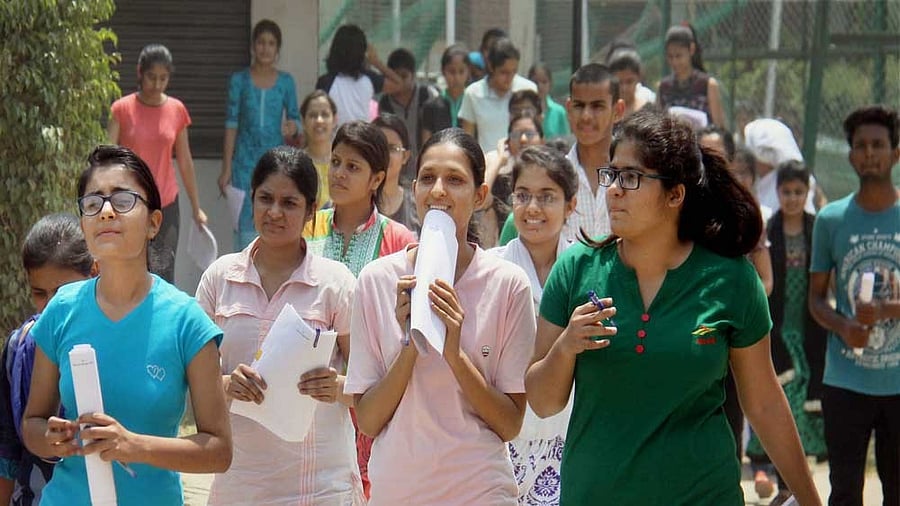
Students appearing for CET exam. Representative image.
PTI
Investigations into the engineering college seat-blocking scam in Karnataka have taken a new turn with the Enforcement Directorate (ED) issuing a notice to the Karnataka Examination Authority (KEA) seeking all details. The scam involves illegally blocking seats in engineering colleges, depriving deserving students of their rightful access to affordable education.
This is a complex, organised fraud that involves private professional colleges collaborating with students and third-party agents to block seats reserved under government quota, thereby undermining the fairness and transparency of the admission process. Private colleges enlist meritorious students to appear for the Common Entrance Test (CET), who after obtaining seats in coveted colleges, intentionally avoid paying fees and completing the admission process.
These unfilled seats which are allotted at concessional fees are then diverted to the colleges which sell them as management seats at much higher fees. The majority of these blocked seats were found to be concentrated in two prominent engineering colleges of Bengaluru that offer highly sought-after courses like Computer Science and Artificial Intelligence. Investigations so far have revealed that hundreds of students had provided fake mobile numbers or used the same IP address while enrolling for the test.
By deliberately blocking seats, these institutions are not only engaging in unethical and illegal practices, but are also denying deserving students from low-income families access to professional education at a reasonable cost. Despite a few arrests being made, the administrators of these colleges have been emboldened by the government’s failure to hold the top brass responsible.
Notably, the Chairman and directors of these institutions, without whose knowledge and complicity the scam could not have occurred, have largely escaped scrutiny. This has perpetuated a culture of impunity, allowing the scandal to continue unchecked.
To prevent such scams, the government should implement robust authentication measures such as linking applications to Aadhar cards, to verify the genuineness of the candidates. This would significantly reduce the scope for fraudulent practices.
The government should not allow a system where merit is undermined and students from weaker sections are allowed to fend for themselves. The real challenge lies in the enforcement and the political will to tackle the problem, as powerful networks are involved.
Chief Minister Siddaramaiah and Higher Education Minister M C Sudhakar must take a greater interest in addressing the issue. If the state is serious about creating an education system that is fair and accessible, it must take stronger action, including delisting colleges implicated in the scam. Only this will restore public faith in the fairness of the CET system. The government should ensure that education remains a powerful tool for social mobility, rather than a commodity reserved for the wealthy.
